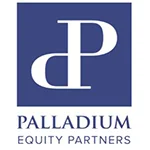 |
| Rick Gould |
If you’ve been watching the news, reading the papers or listening to the pundits, chances are you may be convinced that we’re already in a recession.
My opinion, after a full year of taking the pulse of the industry—via the annual surveys published by Gould+Partners—is that the PR industry will not be facing a recession.
Here’s my reasoning:
- 2021 and 2022 growth to date have been up for firms across each of our four major categories of net revenues: for firms accounting for less than $3 million in net revenues annually, firms with net revenues between $3–$10 million, firms bringing in between $10–$25 million and agencies boasting more than $25 million annually.
Growth was also up in every one of the ten North American regions we track for our surveys.
- Billing rates and utilization percentages were also impressive and strong.
- Profitability percentages averaged 19.7 percent, with the largest category (firms with annual net revenues of more than $25 million) coming in at 21.3 percent and the next largest (firms bringing in between $10–$25 million) at 20.1 percent.
- Average monthly retainers were up as well.
So, in my opinion, 2021 was just too strong for a 2022 national recession to sink the U.S. PR industry.
For the firms that may be impacted because their books of business are too heavily concentrated by a few major clients—and if those clients are in financial trouble—I offer the following insights:
- Meet the recession head-on with focus, discipline and leadership.
- Be sure you’re properly defining and understanding net revenue, the number for which all costs and profitability are measured.
Net revenue is simply fees + markups on rebillables. To be clear, if your fees revenue is $5 million and your markup on rebillables is $100,000, your net revenue would be $5,100,000. And markup is the difference between the rebillable cost you incur and what you billed your client.
For example, if your fee for an event is $75,000 and it costs your team $10,000 for travel and hotel for the event and you billed your client $12,000, the markup on that rebillable is $2,000 (20 percent) and added to the fees of $75,000 for the event to determine net revenues for that event of $77,000 ($75,000 + $2,000).
- Keep account labor costs under 50 percent of net revenues. Make sure to include freelancers that are retained to work on clients in the labor cost.
- Maintain a laser focus on “utilization” (productivity) of every staffer.
Utilization is defined as total client hours divided by total “available” client hours. So, if a full-time staffer has the potential to bill 1,700 hours annually (total hours less all non-client hours) and she billed 1,500 hours, the utilization rate is 88.2 percent (1,500 ÷ 1,700). You should then compare this to our Billing Rate/Utilization Report to compare your staffer’s utilization rate to the industry standard.
- Keep operating expenses to no more than 25 percent of net revenue.
- Included in the total operating expenses is rent, which should be no more than 6 percent. If some of your staff are now remote then your rent expense should be even lower.
- Minimize executive perks. If you anticipate a loss of net revenues, start to cut back now on perks that may be provided during thriving times.
- For retainer clients compare them in our report to your monthly average retainer. If you are under the average dig deeper. You may be grossly over-servicing for the retainer you are receiving.
- Use our annual financial Best Practices Benchmarking Report as a tool. Review each of our twenty benchmarks and compare them to your size and region.
- Try to avoid layoffs of full-time staff. First look at trimming freelancers, T&E, Avoidable office expenses, rent and executive perks.
- Freeze hiring unless the new hire salary is covered by new business.
- Defer bonuses, to be made up post-recovery.
- Tightly manage every item of cost and expenses.
To reiterate, I’m totally optimistic about the growth and profitability of the PR industry in 2022 and 2023. The message, however, is to be ready if an unanticipated event makes your firm the exception.
To your success!
***
Rick Gould is Managing Partner of Gould+Partners, a New York-based merger and acquisition consultancy specializing in the PR industry. He can be reached at [email protected].


 Spectrum Science acquires clinical trial recruitment and engagement solutions provider Continuum Clinical.
Spectrum Science acquires clinical trial recruitment and engagement solutions provider Continuum Clinical. How PR agency owners can navigate the M&A process in a way that yields a rewarding experience for both owners and the teams they leave behind.
How PR agency owners can navigate the M&A process in a way that yields a rewarding experience for both owners and the teams they leave behind. Ten potential ways an agency sale can positively benefit team members and employees.
Ten potential ways an agency sale can positively benefit team members and employees. Kekst CNC reps Palladium Equity Partners and its joint venture affiliate, Palladium Heritage, on the acquisition of National Auto Parts, USA;, NAP San Diego; and National Auto Parts-Oakland to form Collision Auto Parts, a platform serving customers in the automotive aftermarket collision repair sector.
Kekst CNC reps Palladium Equity Partners and its joint venture affiliate, Palladium Heritage, on the acquisition of National Auto Parts, USA;, NAP San Diego; and National Auto Parts-Oakland to form Collision Auto Parts, a platform serving customers in the automotive aftermarket collision repair sector. ICR has acquired Bullfrog + Baum, the 23-year-old PR shop focused on the hospitality, lifestyle, travel and consumer marketing sectors.
ICR has acquired Bullfrog + Baum, the 23-year-old PR shop focused on the hospitality, lifestyle, travel and consumer marketing sectors.


 Have a comment? Send it to
Have a comment? Send it to 
No comments have been submitted for this story yet.